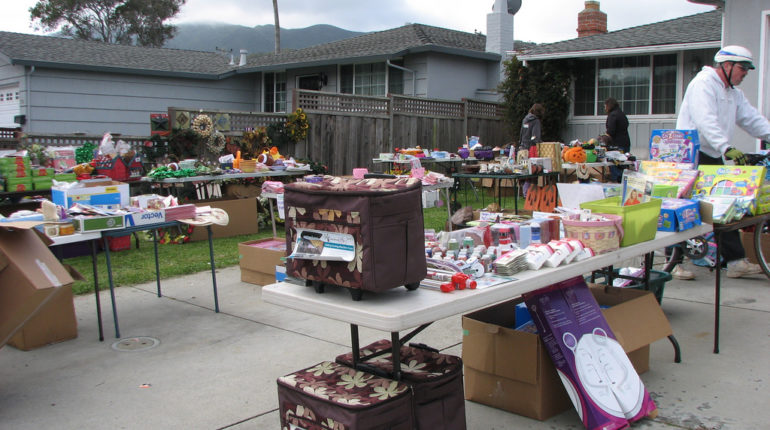Garage Sales and the Occasional Sale Exemption
In general, sales tax applies to the sale of taxable items in Texas regardless of the price of the item, or the number of sales made by the seller. Texas sales tax is a “transaction tax” imposed on the sale, lease or rental of taxable items. A sale occurs when title or possession of a taxable item transfers for consideration. Each time an item is sold for consideration, sales tax is due. See Texas Tax Code Sections 151.005, 151.051(a), 151.006, 151.151 and 151.154.
Certain transactions, however, such as the sale of one or two taxable items during a 12-month period by a person (or company) who does not habitually engage in the business of selling taxable items, or the sale of the entire operating assets of a business in a single transaction, may qualify for exemption from tax as an “occasional sale” under Texas Tax Code Section 151.304. A new category of occasional sale, (151.304(b)(5), that affects the taxability of used items sold by individuals, became effective July 1, 2007, under House Bill 373 (80th Legislative Session, 2007).
Garage-type sales frequently fall under this new occasional sale provision. As a result of the enactment of 151.304(b)(5), sales tax is not due on the sale of items at a garage sale if:
* the items being sold were originally acquired for personal use by the person or a family member of the person selling them; and
* if the total receipts from sales of the individual’s property in the calendar year the garage sale is made do not exceed $3,000.
The rules for occasional sales do not apply to leases or rentals, or to sales made by persons engaged in the business of selling taxable items, including persons who sell at flea markets, antique malls and similar events or facilities and, persons who hold, or are required to hold, a Texas sales and use tax permit or a similar permit or license issued by another state.
A person may also be considered engaged in the business of selling taxable items if that person routinely operates a location where sales of taxable items occur and sells taxable items purchased from other parties, and not used by that person or a family member prior to being offered for sale. For example, a person who has a “garage sale” every weekend may be considered to be engaged in business if the items being sold were not originally bought for the personal use of that person or a family member.
The exemption applies only to sales made by individuals and does not extend to similar sales that may be made by groups or organizations (such as student groups or church groups) who collect items to sell at a garage sale type event; or to “community-wide” type events that are coordinated or produced by a third-party if the seller is required to pay a fee or commission in order to participate in the event (i.e., booth or space rental fees). In these situations, sales tax is required to be collected unless other exemptions apply.
This exemption applies only to the first $3,000 in total receipts that an individual earns from the sale of items that were originally acquired for personal use by the person, or a family member of the person, selling them. Once the $3,000 threshold is reached, the individual must obtain a sales tax permit and begin collecting state and local sales and use taxes beginning with the first sale after the $3,000 threshold was exceeded, and must continue to collect tax on all sales of taxable items for the remainder of the calendar year.
As with all exemptions, the seller is required to maintain records to document that the exemption applies.
